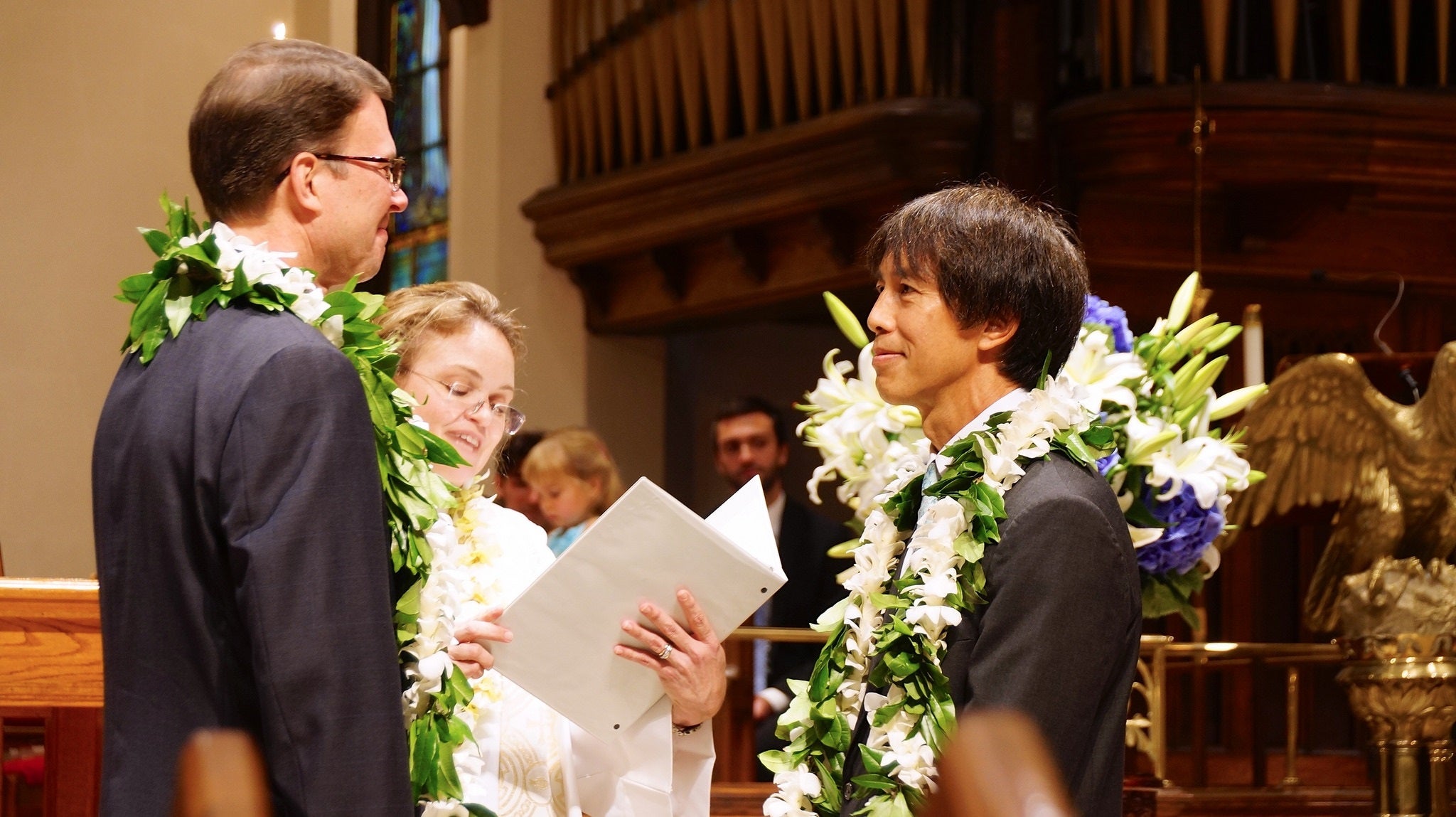Marriage equality: a return to substance over process
The debate on marriage equality this year has focussed on process: should parliament or the people vote on this issue? We now have a welcome move to substance.
Six weeks ago, Attorney-General George Brandis got the ball rolling by releasing an exposure draft marriage equality bill. It sets out how the legal definition of civil marriage could be amended to include all adult couples, with related protections for freedom of religion.
A Senate inquiry into this bill is a positive step because deciding how a reform should be considered is more difficult if the details are unclear.
So far, the marriage equality debate has been bruising. This is partly because it involves a clash of human rights.
On one side is the right to be treated equally before the law for lesbian, gay, bisexual, transgender and intersex people who wish to marry. On the other side, some people of faith oppose on religious grounds any amendment to the law’s definition of marriage.
The Human Rights Commission looks at this issue by reference to international human rights law. Our job would be easier if international human rights law lent itself to a sort of mathematical approach to problem solving: you put in the variables and the legal answer generator spits out a result – lawful or unlawful.
In a liberal democracy like Australia, that is rare. More often, international human rights law provides a guide in how we should accommodate competing rights and interests.
As social animals, we interact. And so we need to compromise because human rights can’t be a ‘winner-takes-all’ contest.
The draft bill attempts such a compromise. It would make civil marriage available to all adult couples, giving voice to the principle of equality before the law.
At the same time, it seeks to carve out important space for freedom of religion, so that ministers of religion and religious organisations don’t have to solemnise a marriage if it is contrary to their faith.
The community now has a chance to comment on where the bill draws these lines. There is room for improvement, and the Commission’s submission will be guided by international law as well as input we receive from people who are affected by this issue.
So far, coverage of the marriage debate has been dominated by the loudest voices. This has given rise to several myths: that all people of faith and people from multicultural backgrounds oppose changing our marriage laws; that all LGBTI people should share the same political views; that all people who oppose changing our marriage laws are bigots; and that faith and LGBTI rights cannot be reconciled.
In my first three months as Human Rights Commissioner, I have seen first hand that these myths are very far off the mark.
For example, last week, I heard from a group of Christian and Jewish leaders, as well as an Imam, about why they support changing our marriage laws. Just weeks before, I met with people of the same faiths to discuss in a respectful manner how their religious beliefs inform their opposition to changing our marriage laws.
This is a debate where all voices have a right to be heard. I encourage people who feel strongly about this issue to contribute to the Senate inquiry – whatever their view might be.
The most consistent message I have heard in my discussions has been surprisingly encouraging. Regardless of their view on amending our marriage law, all the advocates I’ve spoken with have emphasised that they respect the views and the basic dignity of those with whom they disagree.
If that can set the tone for this next stage of our debate on amending the legal definition of marriage, we have much to be hopeful for.
Photo: Creative Commons by Ted Eytan on Flickr

